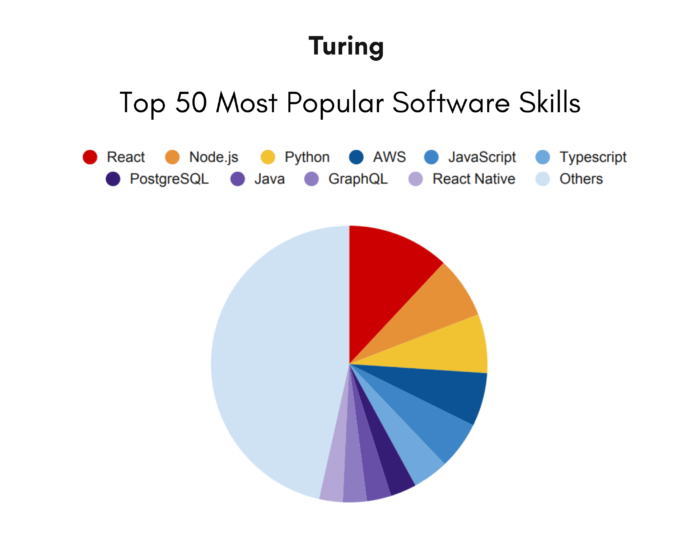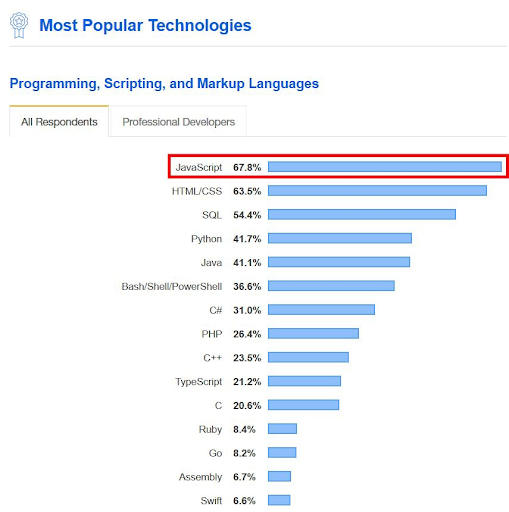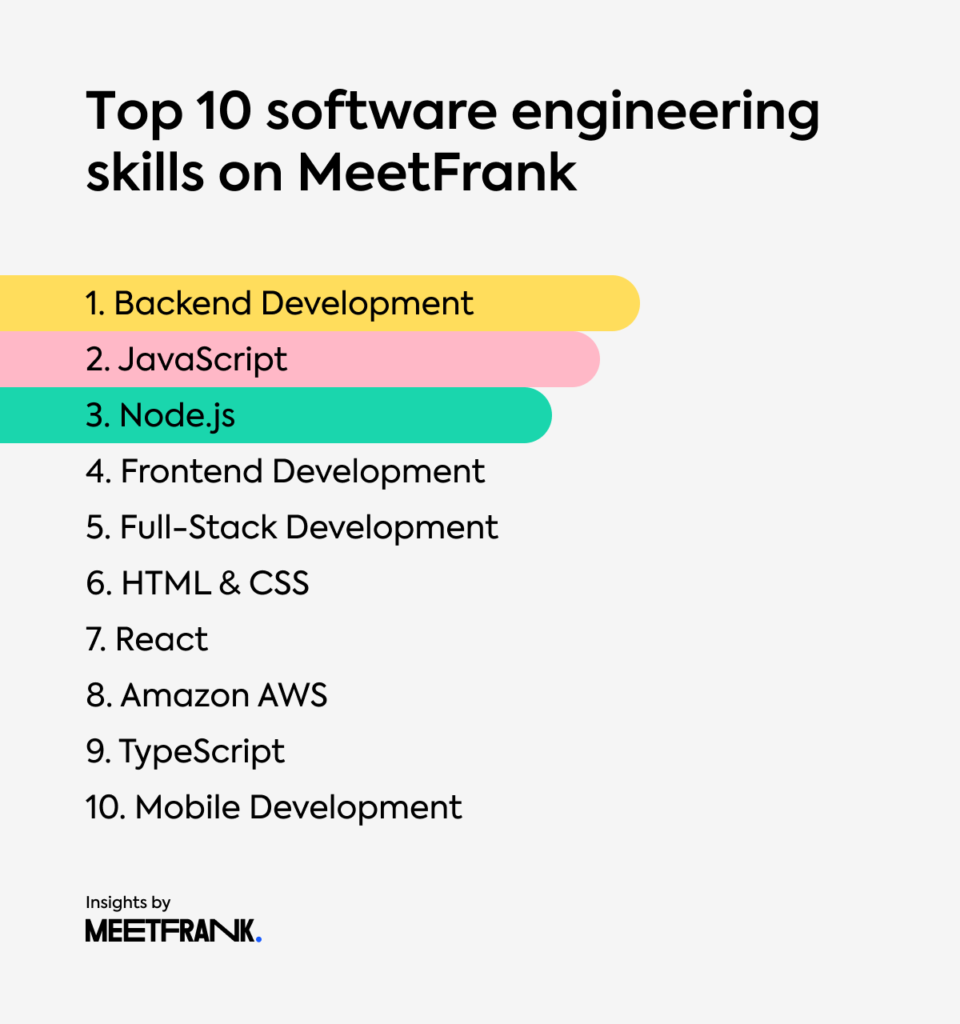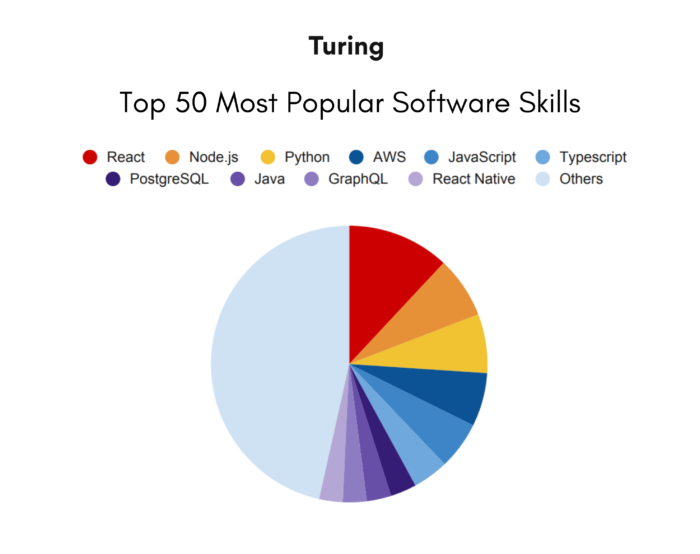You’ve probably heard about the increasing demand for software skills in today’s job market, but have you ever wondered which specific skill is the hottest one right now? With technology evolving at a rapid pace, there seems to be a never-ending list of software skills to choose from. From programming languages to data analysis tools, the options can be overwhelming. However, if you’re looking to set yourself apart and land a coveted job, there is one particular software skill that stands out above the rest. Find out which skill is most in demand and why it holds the key to unlocking numerous opportunities in the software industry.
Introduction
In today’s digitally driven world, software development skills are highly sought after and in high demand. The rapid advancement of technology has created a need for professionals who can develop and maintain various software applications and systems. Whether you’re a seasoned programmer or just starting your journey in the world of software development, there are several key areas that you should consider specializing in to enhance your career prospects. In this article, we will explore some of the most in-demand software skills that can open doors to exciting, well-paying opportunities.
Mobile App Development
With the proliferation of smartphones and the ever-increasing demand for mobile applications, mobile app development has become a crucial skill. There are two major platforms dominating the market – iOS and Android, and having expertise in either or both can greatly enhance your career prospects.
iOS Development
iOS development involves building applications specifically for Apple’s iPhone and iPad devices. The iOS operating system is known for its seamless user experience and high-security standards. If you choose to specialize in iOS development, you will need to learn Swift or Objective-C programming languages and familiarize yourself with Apple’s development tools like Xcode and Interface Builder.
With iOS development skills, you can create feature-rich mobile applications for a dedicated user base, taking advantage of the platform’s unique capabilities such as iCloud integration, Apple Pay, and Core ML for machine learning applications.
Android Development
Android development, on the other hand, focuses on creating applications for the Android operating system, which powers the majority of smartphones globally. Java and Kotlin are the primary programming languages used for Android development, and the Android Studio IDE is the go-to tool for building Android applications.
Android developers have the opportunity to reach a wide audience and create innovative apps that leverage the extensive Android ecosystem, including Google Play Services, Google Maps, and Firebase. As an Android developer, you can tap into the potential of diverse hardware and software configurations, enabling you to build software solutions for a variety of devices.
Cross-platform Development
With the demand for both iOS and Android applications, cross-platform development has gained popularity. Cross-platform frameworks such as React Native, Xamarin, and Flutter allow developers to write code that can be shared across multiple platforms, saving time and effort.
By becoming proficient in cross-platform development, you can create applications that work seamlessly on both iOS and Android, reducing the need to maintain separate codebases. This skill is highly valuable for companies looking to reach a wide audience on multiple platforms while optimizing development resources.
This image is property of www.i-programmer.info.
Web Development
Web development is a broad field that encompasses both front-end and back-end development. Having a strong foundation in web development is crucial as the internet continues to be an integral part of our lives.
Front-End Development
Front-end development involves creating the user-facing side of websites and web applications. It focuses on building interactive and visually appealing interfaces using HTML, CSS, and JavaScript. Front-end developers are responsible for implementing the design, ensuring cross-browser compatibility, and optimizing the user experience.
By mastering front-end development, you can bring designs to life, create responsive and accessible websites, and utilize frameworks such as React, Angular, or Vue.js to build complex web applications.
Back-End Development
While front-end development focuses on what users see and interact with, back-end development deals with the behind-the-scenes functionality of websites and web applications. Back-end developers work with server-side languages like Python, Ruby, or PHP, and databases like MySQL or MongoDB to handle data storage, security, and server-side logic.
Proficiency in back-end development enables you to build robust and scalable web applications, implement secure user authentication systems, and optimize performance by handling heavy server-side processing.
Full-Stack Development
Full-stack development combines both front-end and back-end development skills, making you a versatile and sought-after professional in the industry. A full-stack developer can design and implement the entire web application, from the user interface to the server-side logic and database management.
By becoming a full-stack developer, you can take ownership of the entire development process, work on end-to-end projects, and effectively collaborate with both front-end and back-end teams. This skillset is highly valuable in startups and smaller companies where developers are expected to wear multiple hats.
Data Science
Data science has emerged as a crucial field that involves extracting insights and value from vast amounts of structured and unstructured data. With the increasing reliance on data-driven decision-making in various industries, data science skills are in high demand.
Python
Python has become the go-to language for data science due to its simplicity, versatility, and extensive library ecosystem. In data science, Python is used for data manipulation, analysis, and visualization. Libraries like NumPy, Pandas, and Matplotlib provide powerful tools for working with data, while frameworks like TensorFlow and PyTorch enable machine learning and deep learning applications.
By mastering Python for data science, you can clean and preprocess data, build predictive models, and communicate insights effectively through visualizations and reports.
R
R is another popular language in the data science community. It offers a wide range of statistical and graphical techniques, making it ideal for data analysis and visualization. R’s extensive collection of packages, such as dplyr and ggplot2, provide powerful tools for data manipulation and visualization.
Having expertise in R can open doors to opportunities in data exploration, statistical analysis, and visualization. R is commonly used in research, academia, and industries requiring advanced statistical analysis.
Machine Learning
Machine learning is a subset of artificial intelligence that focuses on algorithms and models that learn from data. It encompasses a wide range of techniques, such as regression, classification, clustering, and deep learning, which enable computers to learn patterns and make predictions.
Proficiency in machine learning allows you to build predictive models, perform data classification, and develop intelligent applications. Knowledge of machine learning libraries like scikit-learn and TensorFlow is essential in this field, as they provide ready-to-use algorithms and tools for model development and evaluation.

This image is property of www.turing.com.
Cloud Computing
Cloud computing has revolutionized the way businesses store, process, and access data. With the advent of cloud platforms, companies can scale their infrastructure on-demand, reduce costs, and improve efficiency.
Amazon Web Services (AWS)
As one of the leading cloud service providers, Amazon Web Services (AWS) offers a wide range of services and features for computing power, storage, databases, and more. AWS provides a scalable and secure infrastructure that allows businesses to deploy their applications and services globally.
By becoming proficient in AWS, you can leverage its extensive suite of services, including EC2 for virtual servers, S3 for object storage, and Lambda for serverless computing. AWS certifications are highly valued and can significantly enhance your career prospects in cloud computing.
Microsoft Azure
Microsoft Azure is another major player in the cloud computing market, providing a comprehensive suite of services for building, deploying, and managing applications and services. Azure offers scalable virtual machines, cloud storage, and various data services, making it a popular choice for businesses of all sizes.
By mastering Microsoft Azure, you can develop and deploy applications seamlessly, utilize services like Azure Functions and Azure Cosmos DB, and integrate with other Microsoft tools and services. Azure certifications can validate your skills and make you a highly sought-after professional in the cloud computing industry.
Google Cloud Platform (GCP)
Google Cloud Platform (GCP) is Google’s cloud computing offering, providing a broad range of services for storage, compute, machine learning, and more. GCP focuses on high scalability, reliable performance, and the ability to analyze vast amounts of data.
By gaining expertise in Google Cloud Platform, you can utilize services like Google Compute Engine, Google Cloud Storage, and BigQuery to build and deploy scalable applications. GCP certifications can demonstrate your proficiency and open doors to exciting opportunities in cloud-based development and data analytics.
Cybersecurity
As technology continues to advance, the need for robust cybersecurity measures is more critical than ever. Cybersecurity professionals play a vital role in safeguarding sensitive data, preventing unauthorized access, and identifying and mitigating potential threats.
Ethical Hacking
Ethical hacking involves identifying vulnerabilities in computer systems and networks by simulating malicious attacks. Ethical hackers use their skills to find weaknesses in security defenses and help organizations strengthen their infrastructure.
Proficiency in ethical hacking can make you a valuable asset in cybersecurity teams, performing vulnerability assessments, penetration testing, and security audits. Certifications like CEH (Certified Ethical Hacker) can further validate your skills and expertise.
Network Security
Network security focuses on securing computer networks and preventing unauthorized access, data breaches, and other cyber threats. Network security professionals configure firewalls, implement encryption protocols, and monitor network traffic to ensure the integrity and confidentiality of data.
By specializing in network security, you can design secure network architectures, detect and mitigate network attacks, and implement security protocols to protect against potential threats.
Data Privacy
With increasing concerns about privacy and data protection, data privacy has become a critical aspect of cybersecurity. Data privacy professionals ensure that sensitive information is handled in compliance with regulations and industry best practices.
Proficiency in data privacy involves understanding privacy regulations, implementing robust data protection measures, and creating privacy policies and procedures. Knowledge of frameworks like GDPR (General Data Protection Regulation) and CCPA (California Consumer Privacy Act) is essential in this field.

This image is property of www.digitalknights.co.
Artificial Intelligence (AI)
Artificial Intelligence (AI) is a rapidly growing field that focuses on enabling machines to mimic human intelligence and perform tasks that would typically require human intervention. AI has applications in various domains, including natural language processing, computer vision, and chatbot development.
Natural Language Processing (NLP)
Natural Language Processing (NLP) involves teaching machines to understand and process human language. NLP enables computers to analyze and interpret text, extract meaning, and generate responses.
By specializing in NLP, you can build applications like voice assistants, sentiment analysis tools, and language translation services. NLP libraries like NLTK and spaCy provide robust tools for working with text data and implementing various NLP techniques.
Computer Vision
Computer Vision is a subset of AI that deals with teaching computers to interpret and understand visual information from images or videos. Computer vision algorithms enable machines to detect objects, recognize faces, and classify images.
Proficiency in computer vision allows you to develop applications like face recognition systems, autonomous vehicles, and object detection tools. Libraries like OpenCV and TensorFlow provide powerful tools for implementing computer vision algorithms.
Chatbot Development
Chatbots have become increasingly popular, providing automated customer support and personalized user experiences. Chatbot development involves building conversational agents that understand natural language inputs and provide relevant responses.
By specializing in chatbot development, you can create chatbots for a variety of purposes, such as customer support, e-commerce, and information retrieval. Frameworks like Dialogflow and Rasa provide powerful tools for developing and deploying chatbots with minimal coding effort.
UI/UX Design
User Interface (UI) and User Experience (UX) design play crucial roles in creating intuitive and enjoyable software applications. UI/UX designers are responsible for designing interfaces that are visually appealing, user-friendly, and provide a seamless user experience.
User Research
User research involves understanding user needs, preferences, and behaviors to inform the design process. User researchers conduct interviews, surveys, and usability tests to gather valuable insights and create user-centered designs.
Proficiency in user research enables you to gather valuable feedback, identify user pain points, and create solutions that meet user expectations.
Wireframing and Prototyping
Wireframing and prototyping are essential steps in the design process. Wireframes are visual representations of the application’s structure, while prototypes allow users to interact with a simulated version of the final product.
By mastering wireframing and prototyping tools like Sketch, Figma, or Adobe XD, you can effectively communicate design ideas, iterate quickly, and validate concepts before development.
Usability Testing
Usability testing involves evaluating the usability and user experience of a software application. Usability testers conduct tests with real users to identify issues, collect feedback, and make data-driven design decisions.
Proficiency in usability testing allows you to improve the overall user experience, identify areas for improvement, and create designs that meet user needs and expectations.

This image is property of meetfrank.com.
DevOps
DevOps is a set of practices that combines software development (Dev) and operations (Ops) to achieve a more efficient and collaborative software development process. DevOps professionals bridge the gap between development teams and operations teams, ensuring smooth deployment and continuous delivery of software.
Continuous Integration and Deployment (CI/CD)
Continuous Integration and Deployment (CI/CD) involves automating the build, test, and deployment processes to ensure software quality and reduce time to market. CI/CD pipelines automate the integration of code changes, testing, and deployment to production.
Proficiency in CI/CD enables you to streamline the development process, detect and resolve issues early, and ensure the consistent delivery of quality software.
Containerization (Docker)
Containerization has revolutionized software deployment by packaging applications and their dependencies into a standardized unit called a container. Docker is a popular containerization platform that allows developers to build, ship, and run applications consistently across different environments.
By mastering Docker and containerization concepts, you can create portable and scalable applications, improve development environment consistency, and optimize resource utilization.
Infrastructure as Code (IaC)
Infrastructure as Code (IaC) involves managing and provisioning infrastructure resources through machine-readable definition files. Tools like Terraform and Ansible allow you to automate the setup and configuration of infrastructure resources, ensuring consistency and reproducibility.
Proficiency in IaC enables you to design and manage infrastructure using code, version control infrastructure configurations, and easily replicate environments across different stages of the development process.
Automation Testing
Automation testing involves using software tools and scripts to perform repetitive testing tasks, reducing manual effort and accelerating the testing process. Automation testing ensures the quality and reliability of software applications while saving time and effort.
Selenium
Selenium is a popular automation testing framework used for web application testing. It allows testers to write test scripts in various programming languages like Python, Java, or C#, and perform automated testing across different browsers and platforms.
By mastering Selenium, you can write robust test cases, perform cross-browser testing, and integrate testing with Continuous Integration (CI) pipelines for seamless automated testing.
TestNG
TestNG is a testing framework in Java that facilitates the creation of more flexible and powerful tests. TestNG provides advanced features like test prioritization, data-driven testing, and test suite configuration.
By mastering TestNG, you can create comprehensive test suites, generate detailed test reports, and easily manage complex test configurations.
BDD (Behavior Driven Development)
Behavior Driven Development (BDD) is a software development methodology that emphasizes collaboration between developers, testers, and business stakeholders. BDD frameworks like Cucumber and SpecFlow enable stakeholders to define application behavior using plain-language specifications that can be easily understood by everyone involved.
Proficiency in BDD allows you to create executable specifications, automate test scenarios, and foster effective communication and collaboration between development teams and stakeholders.
In conclusion, the software skills listed in this article represent some of the most in-demand areas in today’s tech industry. By specializing in one or more of these skills, you can enhance your career prospects, stay relevant in a rapidly evolving field, and contribute to the development of innovative software solutions. Whether you choose to dive into mobile app development, data science, cloud computing, cybersecurity, AI, UI/UX design, DevOps, or automation testing, there are endless opportunities waiting for you to explore. So, keep learning, practicing, and honing your skills to thrive in the exciting world of software development.
This image is property of lh6.googleusercontent.com.

